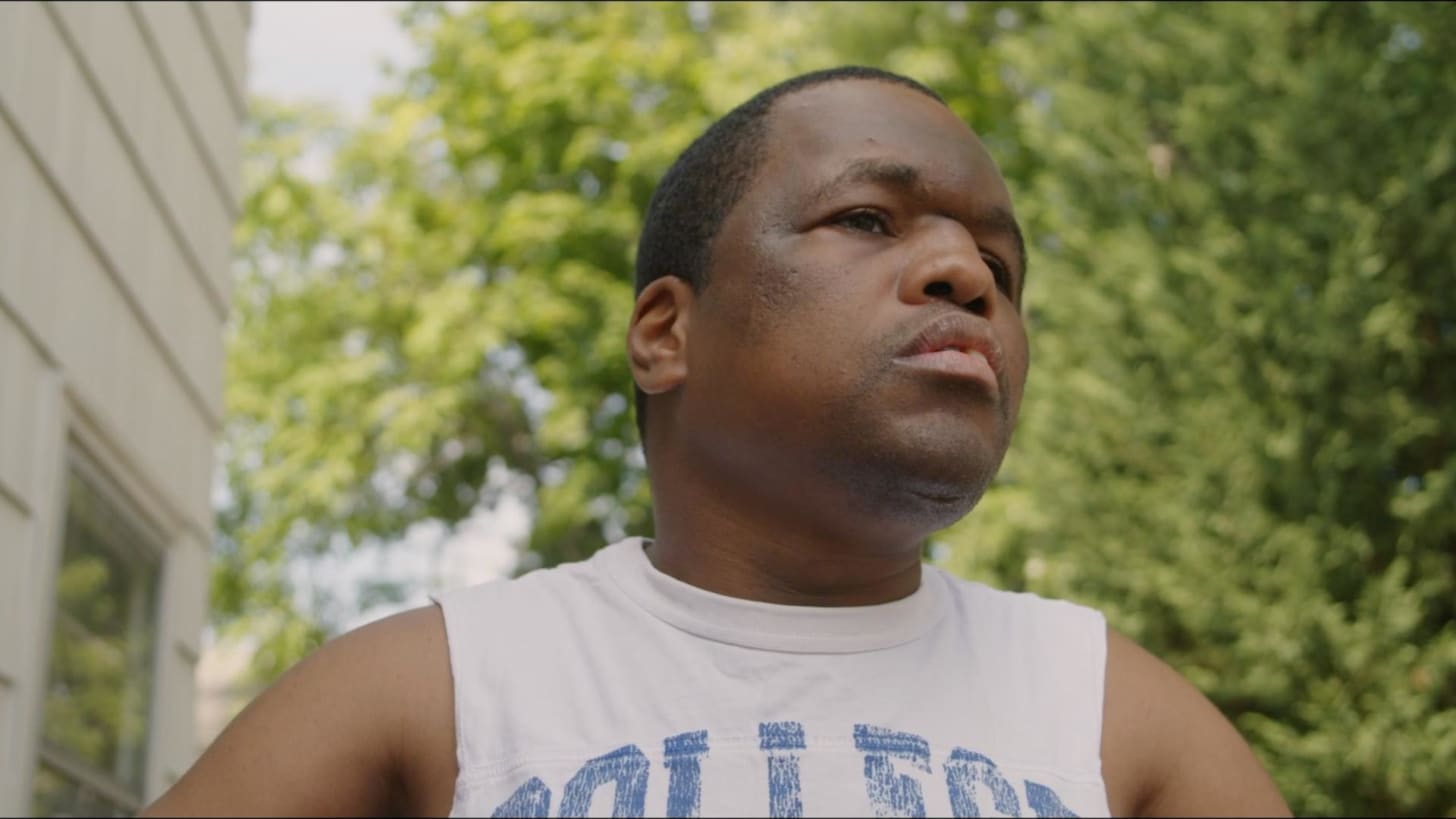
Recently I had the pleasure of participating in the podcast of the National Council on Severe Autism, Autism Confidential, with Executive Director Jacqueline Kancir and Vice President Amy Lutz. It was a great conversation, probing and direct, driven by two women who have made up their minds to be honest and unapologetic regarding a set of issues that are talked about almost exclusively with rhetoric and euphemism. It’s always refreshing to hear their perspective as parents of severely (yes, severely) autistic children and also as experts who have done thankless work laboring in this domain for decades. When you have someone like MSNBC apparatchik Chris Hayes saying explicitly on his podcast that only reactionaries question the stunning rise in autism diagnoses, that those who ask such questions are like Trumpers, it’s nice to have access to the family experience, research knowledge, clarity, and personal investment of people like Jackie and Amy.
The need for such work continues. In its latest roundup of letters to the editor, in response to their recent reported work on the question of whether the autism spectrum should be broken up, the New York Times printed a letter ostensibly written by someone suffering from profound autism, Jason Jacoby Lee:
I am one of these so-called profoundly autistic people this article describes. I cannot utter meaningful speech, and as a result, I was branded for years as someone with an intellectual disability and an I.Q. of 40. All this time, however, I understood everything that was going on around me. I just could not show it to others because of my deranged relationship with my own body.
I am concerned about the creation of a separate category, called profound autism, for those of us with the most severe disabilities. There are real differences between the sort of autism that I have and so-called Asperger’s syndrome. But it does not help us at all to impose a hierarchy of lower and higher functioning. We need to figure out how to tap into the skills and insights of those of us who cannot talk, who make up anywhere from 25 percent to 40 percent of the autistic community, depending on the estimate.
For me, the way out of this dilemma was learning to communicate by typing. I suddenly went from being seen as intellectually impaired to taking college classes. I was never low-functioning, and neither are my autistic brothers and sisters without the ability to speak. I was just misjudged and ignored, and I fear that my fate will be the fate of many others termed low functioning in this new schema.
“Typing” here very likely means facilitated communication. Of course, facilitated communication is an entirely discredited practice, a sad phenomenon that plays on the desperate wishes of vulnerable parents. Originally developed in Australia in the late 1970s and later popularized in the United States in the late 1980s, facilitated communication involves a helper physically supporting or guiding the hand, arm, or shoulder of a non-verbal individual (usually with autism or intellectual disability) as they pointed at letters or typed on a keyboard. Proponents claimed that many non-speaking people possessed hidden intelligence and were only prevented from communicating by the limitations of their bodies. However, rigorous experimental research consistently found that when facilitators were blind to the prompt or question, the purported messages collapsed; the non-verbal clients could not reliably answer questions based on information the facilitator did not and could not know, while when the facilitator did have the information necessary to know the answer, correct responses were produced. A landmark 1995 study by Jacobson, Mulick, and Schwartz reviewed the evidence and concluded that the technique shouldn’t be used in any formal setting because of the overwhelming evidence that facilitators, not clients, were the source of the communication.
Furthermore, major professional organizations have formally condemned the practice: the Association for Behavior Analysis International declared FC a “discredited technique” in a 1995 statement, citing the absence of objective scientific support and the ethical risks to both clients and others. Research reviews consistently find that despite advocate claims, there remains no substantial evidence of attributable communicative ability in clients beyond facilitator influence. The ethical implications are obvious and profound: false reports generated via FC have led to wrongful accusations of abuse, the erosion of trust in legitimate augmentative communication systems, and the continued exploitation of non-verbal individuals and their families under the guise of a miracle cure. The notorious Anna Stubblefield case is particularly stark: in 2011, a Rutgers University philosophy professor engaged in a sexual relationship with a severely disabled man, Derrick Johnson, who had cerebral palsy and no reliable means of communication. Stubblefield insisted the relationship was consensual, asserting that Johnson had expressed romantic feelings for her through FC. Cerebral palsy is the result of serious brain damage before, during, or immediately after birth, often involving a lack of oxygen, which is one of the surest ways to cause major cognitive impairments. You can’t wave away that damage with good intentions; Johnson had no capacity to consent to Stubblefield, no matter what feel-good FC nonsense she claimed. This is precisely why those who suggest that FC is a harmless delusion are wrong: communication has consequences.
No matter how sympathetic the yearning of these family members might be, FC remains scientifically indefensible and ethically perilous. The fact that the emotional reasons that loved ones cling to such a thoroughly discredited practice are so understandable makes the scenario all the more tragic, not less.
And yet here we have the New York Times casually blessing FC in its Letters to the Editor roundup. To be clear, this wasn’t some formal acceptance of the technique by the editorial board, probably more like an overworked lower-level staffer sifting through hundreds of letters to the editor and wearily selecting this one. But in a way that mirrors progressive embrace of FC writ large - it’s just easier to go along with it. Because for that kind of liberal sensibility, the cruelty of bursting someone’s hopeful illusion feels like a greater sin than letting a delusion endure; better to look compassionate than to be correct. Not great in a newspaper, though. My mind is not entirely closed to the possibility that this letter is legit, but the entire history of FC suggests that this is a very remote chance. If in fact the letter was dictated through facilitated communication, as appears very likely, then it was almost certainly written by the facilitator, usually a person who’s desperate to believe that the profoundly autistic person could communicate in that way. I’m sorry if that’s harsh. But it’s better to tell the harsh truth than to live in a pleasant lie. That used to be a sacred belief at the New York Times.
For the record, no matter what the truth about this letter or FC itself, there absolutely are many severely autistic people who truly cannot communicate, who are not merely “misjudged and ignored” but instead have real, deeply unfortunate impairments. How does it help anyone to pretend otherwise? This is the world of contemporary liberalism, where nothing unchangeable is allowed to be bad, where nothing inherent can be seen as unfortunate. We have to always be pummeled with the sunny, false stories insisted on by people who can’t accept the tragic nature of reality. To say what the New York Times won’t: there is no scientific basis for the claim that every autistic person hides a fully-functioning person inside, and the fact that it takes facilitated communication to perpetuate that lie should tell you something. Major institutions like this constantly deferring to the wishful thinking of anguished family members helps no one. We have to be stronger than this.
Things don’t get much better from there. Letter writer Jeff Putz:
In your story about the desire to subdivide autism diagnoses, you use the term “higher functioning.” To be clear, this is not a term used in the D.S.M. I can’t trace its origins, but my guess is that it was invented by parents wanting to separate their children from others on the spectrum.
This gets tricky when the term offends people who tie their identities to their condition. Some don’t even like that autism is considered a “disorder.” My son, who was given a diagnosis at 3, and I, who was diagnosed at 48, try to steer clear of the politics, but “high functioning” implies that we might be “low functioning.” It’s better to not use the term.
Jeff Putz
Putz here is of course well aware of what high-functioning and low-functioning mean. While the exact boundaries of those categories will always be fuzzy, they reflect perfectly real and totally obvious realities: some people’s autism is so severe that it causes them to be unable to feed themselves, clothe themselves, regulate their own bathroom functions, speak or communicate in other ways, stop hitting themselves, go to conventional school, have a job, etc. Those people are low functioning. Some people who claim to be autistic have Ivy League degrees and busy professional lives and put “#actually autistic” on their dating app profiles. Those people are high functioning. Then, there’s the world of ability in between, which we can divide into higher and lower levels of functioning - yes, somewhat imprecisely and contextually, but still meaningfully. Some people with an autism diagnosis have dramatic deficits in terms of performing basic tasks that people without autism can perform, while some seem to have (and profess to have) no impairments at all. None of this is complicated. It might point at some uncomfortable realities, but it’s not hard to understand, including for the letter writer.
The denial of differing levels of severity of autism strikes me as one of the purest expressions of all of the bad practices that have cropped up in autism discursive spaces over the years. For one, it’s simply adding another practical problem to the preexisting touchy challenge of definition - we’ve already shoved people with vastly different lived realities into the same diagnosis, and now you want to forbid pointing out that some forms of autism are more severe than others? And then there’s the triumph of manners over thinking here; the fear that it’s impolite to say that someone is low functioning is given higher priority than the plain fact that some people simply are. It’s a microcosm of an issue that grows larger and larger (thanks to mushrooming diagnosis rates) and more and more heated over time. No matter what compromises people try to make, they end up stepping on the toes of someone who has developed a ton of symbolic baggage around language choices that are not meaningful relative to the material stakes.
Well, look - things are not going to get better for autistic people by all of us living in euphemism and pretending that problems aren’t problems, that those who are severely impaired by autism actually aren’t, by ignoring these vast differences in lived experience. As uncomfortable as it might be, things only get better when you tell the truth. And the truth is that autism severely disables some people. As Amy and Jackie have spent years pointing out, there is simply no reason to think that there’s an “intact mind” hiding in every nonverbal autistic person; as I will not stop pointing out, it’s in fact rather cruel to insist that there must be, as to do so necessarily suggests that those human lives that do not include a conventional consciousness must not be worth living. As is so often the case in life, the sunny insistence on bright-siding this issue obscures a hidden darkness: only by accepting the limits of those with severe autism can we honor the equal value and dignity of their actual lives. No one was ever honored with a lie.
I’m perpetually engaged with this issue, in part, because it’s such a genuinely complex problem, so full of legitimate competing interests and deeply sympathetic attitudes and real pathos. But it’s also filled with a lot of bullying and activist nonsense, which is why I often feel compelled to get involved. During the podcast, the hosts and I discussed the tendency of the high-functioning “neurodiversity” types to insist that, in the event of a re-dividing of the spectrum, they get to keep the term autism. As Jackie and Amy say, if it results in a more workable and humane environment for severely autistic people like their children, they’ll gladly cede the term to the people who see autism as a cool identity category rather than as a disabling disorder. Personally, I would ask you to consider the obvious question: what can it say about a group’s lived experience of their supposed disability, when they’re more interested in being territorial about the name than they are about the accommodations that are available for those people who need such accommodations simply to live healthy lives?
.png)




